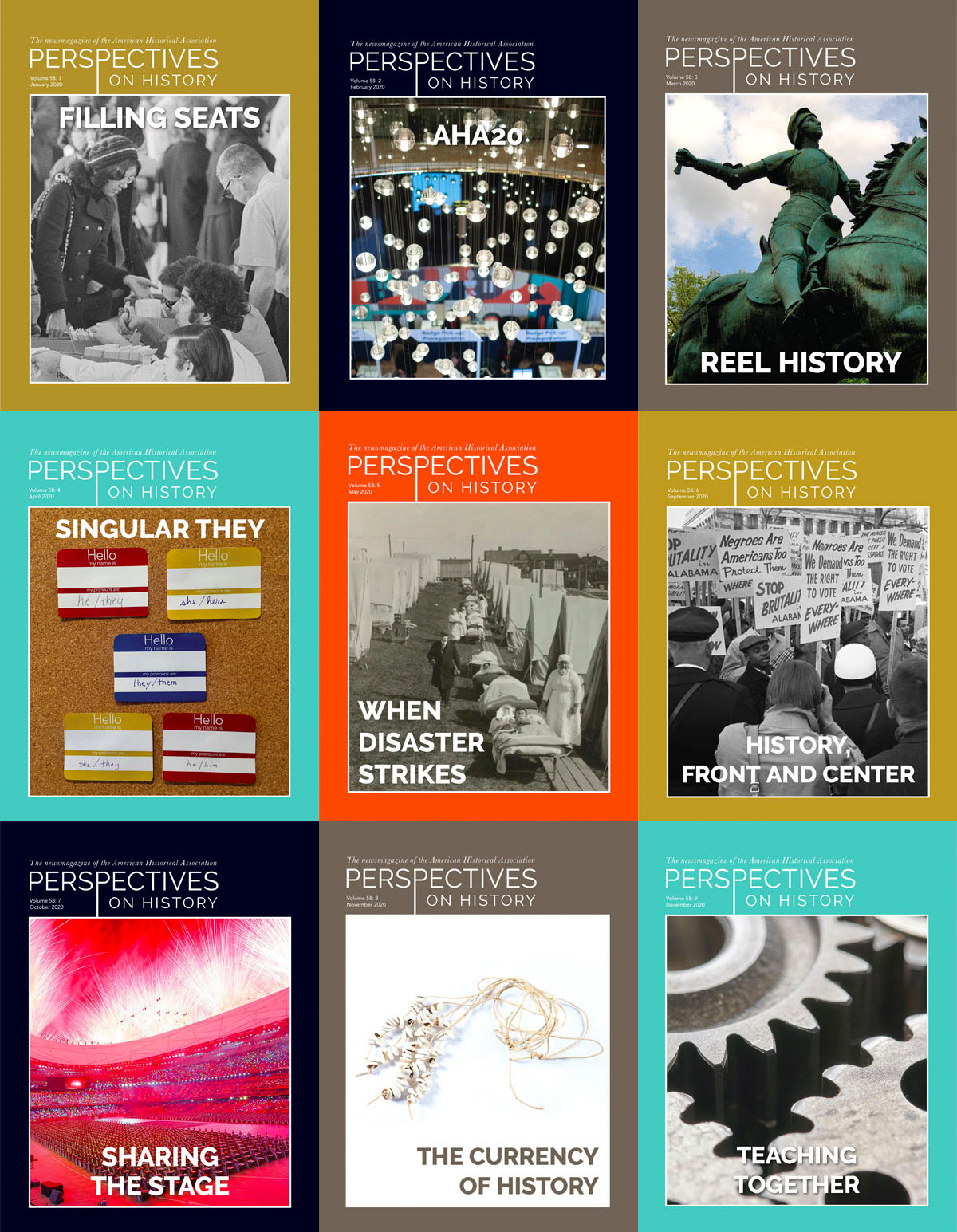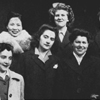Perspectives on History cultivates the community of historians and promotes our work. In 2020, a year defined by “pivoting to virtual,” the publication continued to showcase the vital, needed work that historians do. Perspectives published pieces offering essential context for understanding current events, covering everything from protecting cultural heritage during a natural disaster to mask wearing during a pandemic, calls to “defund the police,” and presidential illness or incapacity. We took a closer look at objects like the pith helmet and early meat substitutes in the new Everything Has A History feature and had the opportunity to share articles offering valuable support for folks transitioning to online teaching. As serious as the issues that confronted historians in 2020 were, Perspectives also found some time for fun, publishing articles on improv comedy as public history, Star Trek, and “Tudormania.”

The nine print issues of Perspectives on History covered topics related to the COVID–19 pandemic, digital history, the presidential election, and more.
We are excited to share new articles and projects with our readers in 2021. For now, though, we’re enjoying a chance to look back on the incredible work that historians produced in a difficult year. As I wrote in my first Townhouse Notes column in September, their work “offers me hope in moments of despair and reminds me that we are actors in much longer struggles for justice, health, and knowledge.”
Before heading out on a much-needed holiday break, the team behind Perspectives pulled together a list of each month’s most popular articles. Enjoy this look back at what resonated with us in 2020.
January
The Job of the Academic Market by Rebecca S. Wingo
How much time does the academic job market take for the applicant? One historian adds up the hours.
February
The 2020 AHA Jobs Report: New History PhDs Awarded Continue to Decline as Academic Job Market Remains Flat by Dylan Ruediger
We may have reached a point of stability in the academic job market.
March
Transitioning to Online Teaching: A How-To Guide by Steven Mintz
Pivoting your history courses online? Here are some tips for that transition.
April
If You Charge Facts with Bias, Historians Are Guilty by John Broich
A historian reflects on the political backlash he faced after an op-ed was picked up by the right-wing media.
May
WEIRD Science: Incest and History by Brian Connolly, Hans Hummer, and Sara McDougall
An argument for including historians on interdisciplinary research teams.
June
Defund the Police: Protest Slogans and the Terms for Debate by Austin McCoy
Historian Austin McCoy analyzes protest slogans, which can spark debate about a movements demands, goals, and paths forward.
July
Productivity Moves with Our Bodies: Understanding Research Gaps during COVID-19 by Ángela Vergara
Living through a pandemic shifted one historian’s approach to both her own productivity and the women she studies.
August
Setting the Lost Cause on Fire: Protesters Target the United Daughters of the Confederacy Headquarters by Karen L. Cox
Protesters burned the United Daughters of the Confederacy’s headquarters in Richmond, Virginia, because it functions as a monument to white supremacy and the Lost Cause.
September
On the Peaceful Transfer of Power: Lessons from 1800 by Sara Georgini
Historians can read plenty of pointed lessons in the presidential election of 1800, a surprisingly uncivil brawl between two aging revolutionaries.
October
Fearing a Fear of Germs: How Did the Surgical Mask Transform from a Sign of Bigotry to a Sign of Care? by Heather Murray
During the HIV/AIDS epidemic the surgical mask was a sign of homophobia; COVID-19 may transform it into a gesture of communal solidarity.
November
Practicing History: Why SUNY Cortland Requires Public History by Evan Faulkenbury
SUNY Cortland decided to require a public history course because of its potential to attract new students, retain majors, and empower them with confidence that their history degree would be valuable and versatile.
December
Narratives and Counternarratives: Building Digital History Projects in the Classroom by Allison Robinson
Allison Robinson designed a project to help develop students’ digital history skills.
Ashley E. Bowen is editor of Perspectives on History. She tweets @AEBowenPhD.
Tags: Perspectives Daily Professional Life Research Teaching & Learning

This work is licensed under a Creative Commons Attribution-NonCommercial-NoDerivatives 4.0 International License. Attribution must provide author name, article title, Perspectives on History, date of publication, and a link to this page. This license applies only to the article, not to text or images used here by permission.
The American Historical Association welcomes comments in the discussion area below, at AHA Communities, and in letters to the editor. Please read our commenting and letters policy before submitting.
Comment
Please read our commenting and letters policy before submitting.










